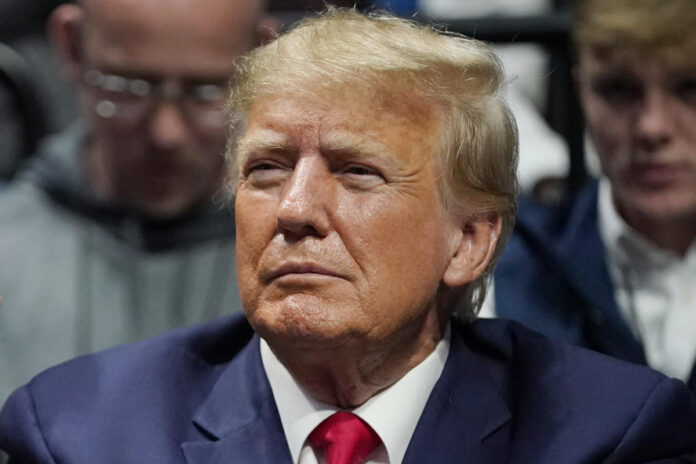It’s the same thing we saw before. In an effort to validate its fixation with demonizing the former president, the Manhattan District Attorney’s Office has been looking into Donald Trump for years. The DA’s office may finally get its dream now that a grand jury has been called to consider allegations of fabricating business documents associated with the Stormy Daniels affair: a chance to indict Trump and embarrass him once more in the eyes of the public.
But before we jump to conclusions, let’s look at the case’s factual and legal foundation and pose some challenging questions to ourselves. Is there any proof that Trump fabricated corporate records on purpose and with knowledge? Does the DA’s motivation to pursue this case go beyond partisan resentment? More importantly, should we permit prosecutors to abuse their authority and break the law in order to further their personal grudges?
The alleged crime will be discussed first. The grand jury’s charge, according to the Wall Street Journal, “hasn’t been publicly disclosed, but people familiar with the matter said it is related to a payment Mr. Trump’s company made to adult film actress Stormy Daniels in exchange for her silence about an alleged affair with Mr. Trump,” according to those who are familiar with the situation. The disputed payment was made in 2016 using resources from Trump’s personal attorney, Michael Cohen, who pleaded guilty to organizing the payment in violation of the regulations governing campaign finance. Trump, who was then a contender for president, was said to have given Cohen instructions, according to Cohen.
Cohen’s admission of breaking the law does not, however, imply that Trump did as well. Trump’s alleged involvement in the payment may not even be considered criminal, let alone a felony, for a number of reasons. First off, the payment was made with private monies, which Trump had full right to use any way he pleased, and was not made with campaign dollars. Second, the payment might have been made for non-political reasons that were personal, such as protecting Trump’s marriage or reputation. Third, even if the payment were recognized as a campaign expense, it would be difficult to determine whether Trump was aware that it was illegal because campaign finance regulations are notoriously difficult to understand and ambiguous, and they are frequently broken by campaigns of all stripes without fear of repercussion.
What then constitutes the DA’s foundation for accusing Trump? It appears that Trump’s business allegedly altered a property’s valuation to avoid paying taxes and secure financing. This is a process known as “inflating and deflating” values that is widespread in the real estate sector and isn’t necessarily unlawful if done within specific parameters and with acceptable justifications. Alvin Bragg, a progressive Democrat who ran for office on the promise of “restorative justice,” however, is keen to pursue Trump under any pretext and is said to have put together a “task force” of prosecutors to look into him and his corporate empire. Serious questions concerning justice, objectivity, and due process are raised by this.
For starters, the existence of such a task team raises the possibility that the district attorney’s office has already decided that Trump is guilty and is only searching for evidence to confirm this assumption. The proper way to conduct an inquiry is to gather data impartially and objectively before drawing conclusions based on the evidence. A task force also suggests that the district attorney’s office is using excessive resources and employees to attack one person and his associates while ignoring other, more urgent issues that jeopardize New Yorkers’ safety and well-being. This is a neglect of duty and a waste of tax resources.
Additionally, the DA’s office has a history of adopting tactics that are on the verge of harassment and intimidation to pursue politically motivated cases against Trump, his family, and his business connections. Recall the failed attempt to charge Paul Manafort, Trump’s former campaign chairman, with crimes unrelated to his work for the campaign but intended to coerce him into helping the Mueller probe. Furthermore keep in mind the continuing civil case alleging tax fraud against the Trump Organization, which is based on shaky evidence and dubious legal theories and appears to have been brought primarily to humiliate and defame Trump. And once again think back to the protracted probe of Trump’s tax returns that Democratic politicians and media outlets exploited to demonize Trump as a tax cheat and con artist despite the fact that no criminal charges were brought.
None of this implies that Trump is exempt from the law or that he is blameless in any and all accusations. He should be held accountable if he did break the law, just like any other citizen. Yet it takes more than hearsay, rumor, or suspicion to hold someone accountable. Proof that the defendant actually committed the offense and did so with the required knowledge and intent must be provided beyond a reasonable doubt. Moreover, a clear, impartial, and fair method must be used, in which


